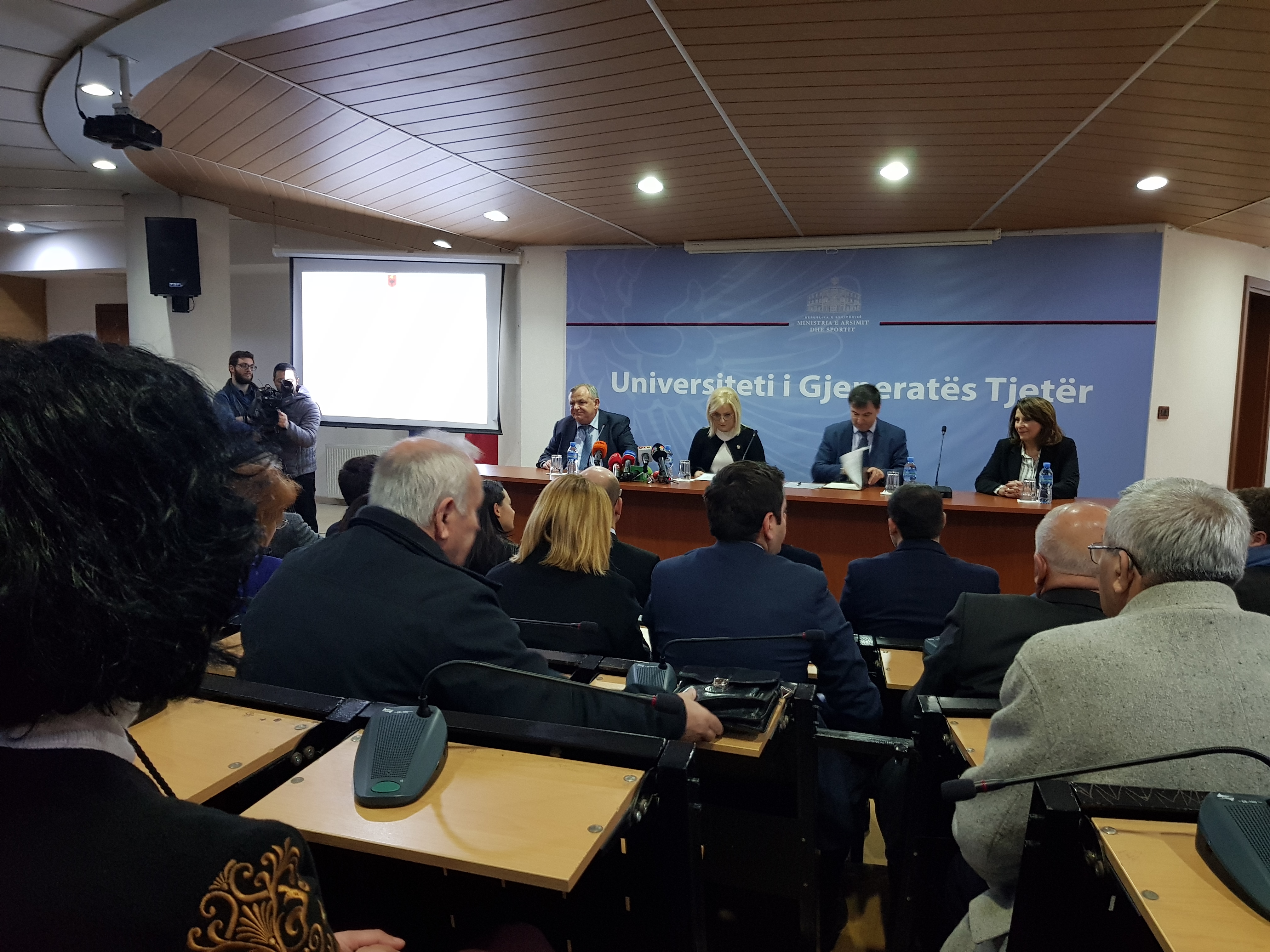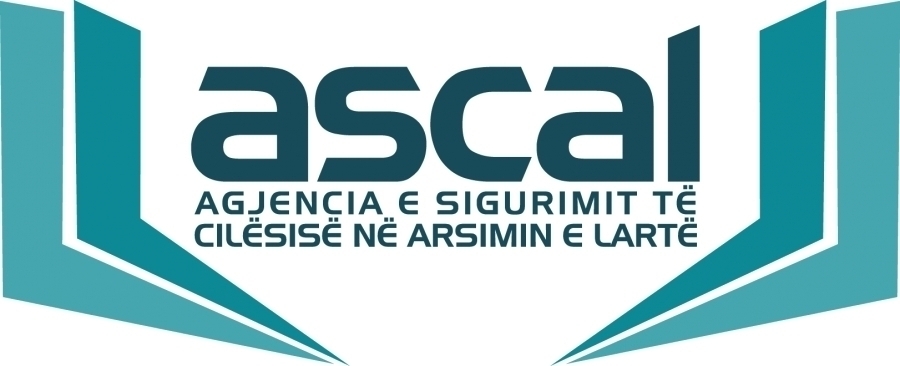On February 2, 2018, the Agency for Quality Assurance in Higher Education (ASCAL), in cooperation with the Ministry of Education, Sport and Youth, held the meeting with Rectors and HEI representatives, on the analysis of the process of evaluation and accreditation of Institutions of Higher Education in Albania, with the British Agency for Quality Assurance.
The meeting was held in the premises of the Faculty of Medical and Technical Sciences of the University of Medicine, Tirana, with the participation of the Minister Mrs. Lindita Nikolla and the Chairman of the Accreditation Board, Mr. Arjan Gjonça, and the Rector of UMT, Mr. Arben Gjata who in his greeting speech emphasized among other things the importance of this process for the university he leads.
In her speech, the Director of ASCAL, Mrs. Bozo briefly presented the beginning of this process, the parties involved, the stages, its progress, the timelines and activities carried out in the 35 HEIs involved, of which 13 were public HEIs and 22 were private. Mrs. Bozo listed in her speech some of the features that this process had, being the first to be implemented for public HEIs, where the procedures, the legal basis and standards were the same for all institutions evaluated by international experts, developing a transparent process and providing advance consulting. One of the innovation of this process was the implementation of staff / student questionnaires for the first time, where over 4000 questionnaires were distributed to staff, 54% of them completed and over 90,000 questionnaires to students, which are practically 70% of the total number of students, and had 24% questionnaires completed; as well as the use of the AMS system that facilitated communication in distance. There were three major stages of this process, internal evaluation, external evaluation and decision making where the judgment was based in four levels (standards are not met; standards are partially met, standards are largely met, standards are fully met). The findings of this process were from good practices encountered, weaknesses identified, and affirmations for future actions taken.
Mr. Gjonça in his speech emphasized that it was a comprehensive and transparent process, where the best international experience was used which resulted in a very high quality product. The evaluation was based on qualitative analysis (documents / interviews) and quantitative (measurable indicators), and the questionnaires created a basis for the Annual National Student Survey to be held in March-May. Most importantly, this whole process was not affected by political decision making, and the accreditation was 100% positive with an average accreditation duration of 3.9 years. This process, with all its strengths and weaknesses, helped us to revise the evaluation part with the same standards for HEIs with “different statuses”, and this will be reflected in the new Quality Assurance Standards and of course improve the questionnaire for the student survey. Another important news is the start of accreditation of study programs for public HEIs, in the first 6 months of 2018.
At the meeting, Mrs. Nikolla welcomed and thanked the participants and other parties interested in the process, stressing the importance of why it should be developed. The Ministry also informed the start of a second process of verification and legality checking in higher education institutions in the country, namely VKL 2.




